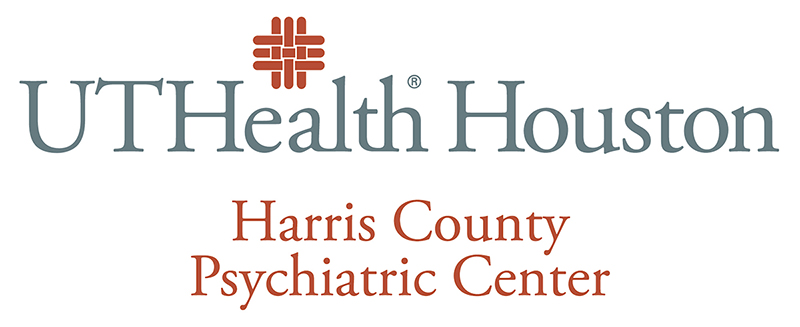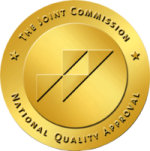UTHealth Houston Harris County Psychiatric Center
Depression
Types of Depression • Causes • Signs & Symptoms • Treatments • Medication Therapy • Psychotherapy • Living with Depression • How Family and Friends Can Help
Feelings of sadness and discouragement are normal emotional reactions to difficult situations. But when these feelings last more than a few weeks, it could be a sign of the mood disorder called depression.
Depression is one of the most common of all mental illnesses. It can appear at any age, and one in five women and one in 10 men will experience depression sometime in their lives. Almost 90 percent of those who suffer from depression could be effectively treated, and those who are treated realize some benefit. But many go untreated, largely because they do not recognize the illness or notice the patterns, blaming the symptoms on flu, stress, lack of sleep or poor diet. If left untreated, depression could eventually lead to suicide.
If people recognize the symptoms and patterns early and seek treatment, they can avoid much needless suffering.
Depression occurs in several forms, and some of these may overlap. In the case of depression, psychiatrists may give more than one diagnosis because the illness is often linked with other problems like substance abuse, eating disorders or anxiety disorders.
Clinical depression refers to a condition serious enough to require professional treatment. A person who experiences severe depression during a single period is said to have had an episode of clinical depression. Major depression is marked by more severe or exaggerated symptoms.
A more recently identified form of depression - seasonal affective disorder (SAD) - is triggered by seasonal changes, like weather patterns or the amount of available daylight.
Another severe type of depression is manic-depression, or bipolar disorder, so named because its sufferers experience not only the lows of depression but also the highs of mania.
While research has led to a significant understanding of depression, scientists have not found the exact mechanism that triggers depression. Most likely there is no single cause. However, recent studies have linked depression to genetic changes in body chemistry. These changes usually involve imbalances of neurotransmitters (chemicals that allow brain cells to communicate), particularly serotonin and norepinephrine.
Other factors, such as negative family relationships, serious illness, major loss or change, and substance abuse, can cause or complicate depression. Close relatives of people with depression are sometimes more likely to develop either depression or manic-depression than the general population.
True clinical depression is frequently mistaken for occasional sadness, discouragement, disappointment or "the blues." These feelings usually appear in depression, but in a more intense and prolonged form. People who suffer from depression will likely display one or more of the following behaviors:
- Feelings of worthlessness, hopelessness, helplessness, total indifference and/or extreme guilt
- Prolonged sadness; unexplained crying spells
- Jumpiness or irritability
- Withdrawal from formerly enjoyable activities or relationships
- Inability to concentrate or remember details; indecisiveness
- Noticeable change in appetite with sudden weight loss or gain
- Changes in sleep patterns: constant fatigue, insomnia, early waking, oversleeping
- Physical ailments that cannot be explained otherwise
- Thoughts of death or suicide attempts
Depression is one of the most treatable of all mental illnesses. As many as 90 percent of people with depression respond well to treatment, and nearly all of those treated experience some benefit. Like many other mental illnesses, depression is usually treated with medication, psychotherapy or a combination of the two. Patients can usually see relief of their symptoms in just a few weeks.
Antidepressant medications are used to correct imbalances of certain neurotransmitters. Five groups of medications are most often prescribed for depression: tricyclic antidepressants; monoamine oxidase inhibitors (MAOIs); selective serotonin reuptake inhibitors (SSRIs); and serotonin and norepinephrine reuptake inhibitors (SNRIs); and other "atypical" antidepressants.
The effectiveness of antidepressant medications depends on a person's overall health, weight and metabolism, and other unique physical traits, and they are usually prescribed to fit the individual. If one medication doesn't work, the physician may try another or a combination of medications to determine the most effective regimen. Generally, antidepressants become fully effective within three to six weeks.
Other forms of therapy are electroconvulsive therapy (ECT) and light therapy. While its use has decreased as more advanced medications have been developed, ECT remains very effective for treating patients who cannot tolerate or take medications due to medical conditions, old age, malnutrition, or those who do not respond to anti-depressant medications. Light therapy is used primarily for those who suffer from seasonal affective disorder. Patients using this treatment spend regular, therapeutic sessions bathed in light from a full-spectrum light source.
Psychotherapy involves the verbal interaction between trained professionals and patients. The therapist uses techniques to help the patient gain personal insight that will allow him or her to positively change thoughts, feelings or behaviors.
Several forms of this "talk treatment" have proven to be helpful in the treatment of depression. They include interpersonal psychotherapy, cognitive-behavioral therapy, psychoanalysis and psycho-dynamic psychotherapy.
Depression can make a person feel fatigued, worthless, helpless and hopeless. It is important to realize these feelings are a result of the depression and do not accurately reflect a person's true situation. Until treatment takes effect, a person suffering with serious depression should:
- limit commitments;
- set realistic goals and expectations;
- spend time with other people;
- participate in enjoyable activities;
- seek the advice of close friends or family before making important decisions;
- realize they will not "snap out" of their depression;
- think positively and reject negative thoughts.
How Family and Friends Can Help
The most important thing family and friends can do for the depressed person is to help him or her get treatment. This may involve encouraging the patient to stay with the treatment, going with the patient to the doctor, or even monitoring whether the patient is taking medication.
Another important way to help is to offer emotional support - understanding, patience, affection and encouragement. Always listen to the depressed person. Do not ignore any remarks about suicide; report them to the doctor immediately.


